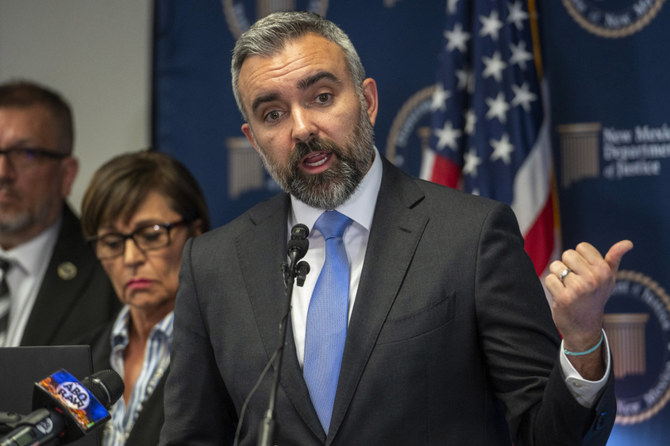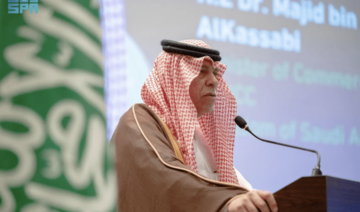ALBUQUERQUE, US: New Mexico state’s top prosecutor announced charges Wednesday against three men who are accused of using Meta’s social media platforms to target and solicit sex with underage children.
The arrests are the result of a monthslong undercover operation in which the suspects connected with decoy accounts that were set up by the state Department of Justice. The investigation began in December around the time the state filed a civil lawsuit against the social media giant, claiming Meta was failing to take basic precautionary measures to ensure children were safe on its platforms.
New Mexico Attorney General Raúl Torrez said during a news conference Wednesday that the suspects communicated and exchanged explicit sexual content through Facebook’s messenger app and were clear in expressing a sexual interest in children.
“It’s extraordinarily concerning to us just how easily these individuals found the undercover personas that were created,” Torrez said. “And it is, frankly, I think a wakeup call for all of us to understand just how serious these kinds of threats are.”
He placed blame on Meta executives, including CEO Mark Zuckerberg, and suggested that the company was putting profits above the interests of parents and children.
“For those of us who are engaged in this work, we are simply tired of the rhetoric,” he said. “We are tired of the assurances that have been given to members of our communities, to members of Congress, to policymakers that all reasonable steps have been taken to ensure that this type of behavior doesn’t occur.”
Meta disputed the allegations and reiterated Wednesday that it uses technology to prevent suspicious adults from finding or interacting with children and teens on its apps and that it works with law enforcement in investigating and prosecuting offenders.
The company also said it has hired child safety experts, reports content to the National Center for Missing and Exploited Children and shares information and tools with others to help root out predators.
“This is an ongoing fight, where determined criminals evolve their tactics across platforms to try and evade protections,” Meta said in an emailed statement.
While the state attorney general’s office will continue working to identify predators who are targeting children, Torrez said it’s too early to say whether that work will have a bearing on the civil litigation.
As part of that lawsuit, New Mexico prosecutors say they have uncovered internal documents in which Meta employees estimate about 100,000 children every day are subjected to sexual harassment on the company’s platforms.
The three defendants in the criminal case were identified as Fernando Clyde, Marlon Kellywood and Christopher Reynolds. Prosecutors are seeking to detain them pending trial on charges that include child solicitation by an electronic communication device.
Hearings have yet to be scheduled, and court records did not list attorneys who could speak on behalf of Clyde and Kellywood. A message was left with the public defender’s office, which is representing Reynolds.



























